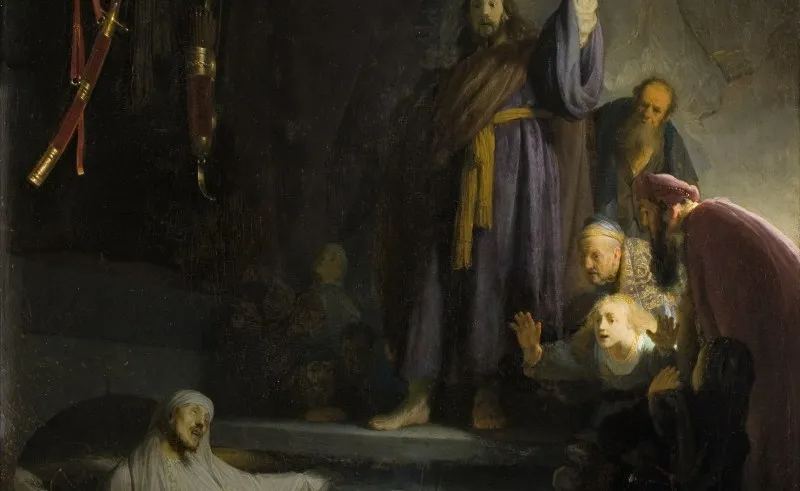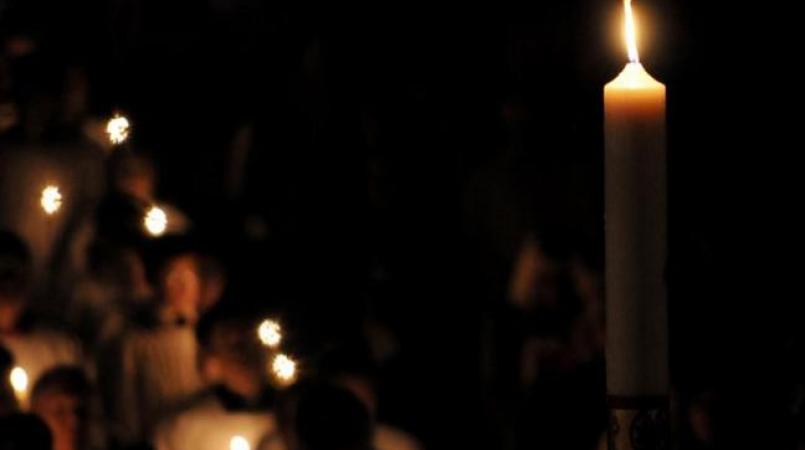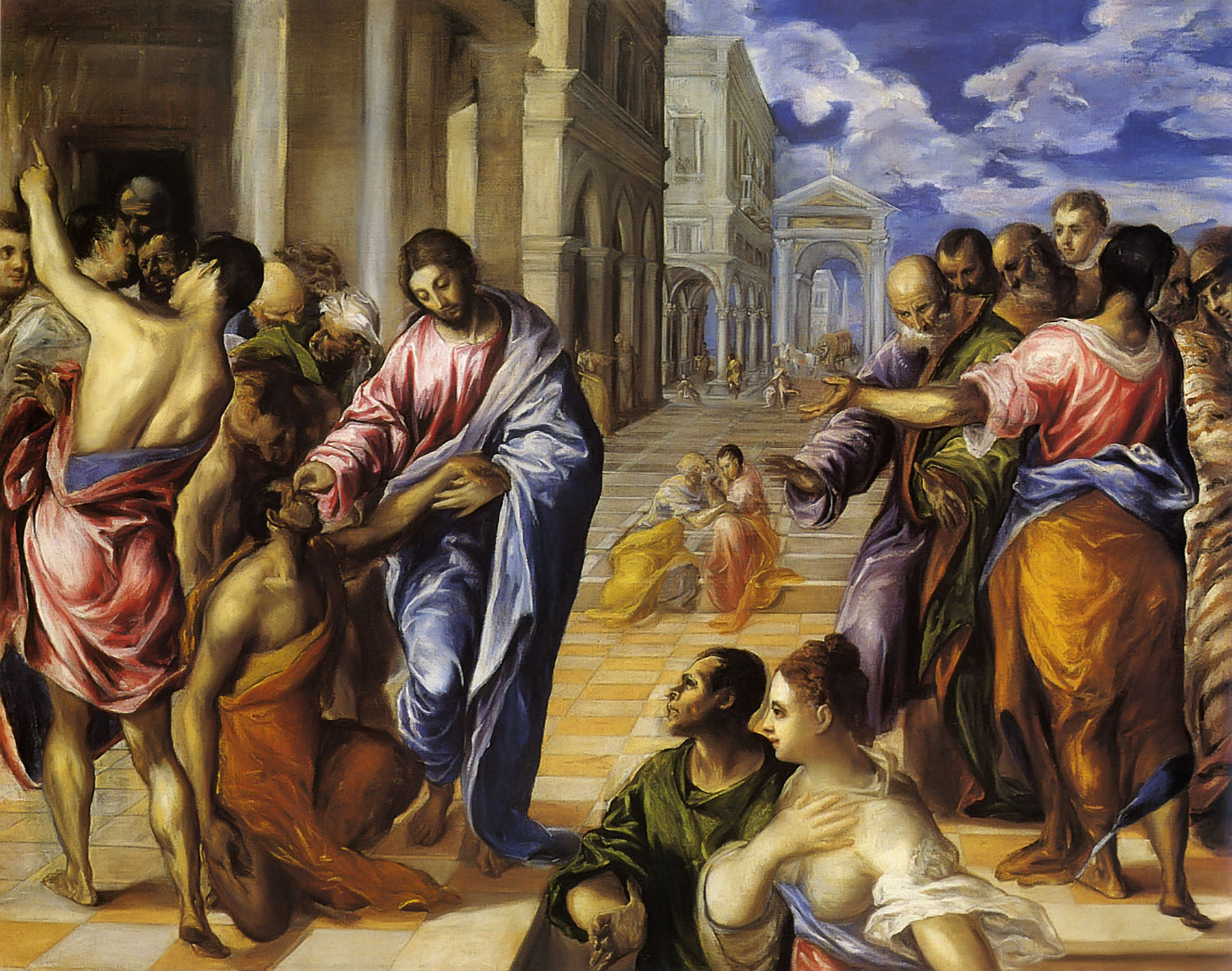“Lord, by now there will be a stench.”
That’s one of my favorite lines in scripture. It begs the question I want you to pray about this week, which is this: “What in your life really stinks?” Because we have to have that stench washed away in order to really live.
If you know my preaching, you’re not going to be at all surprised about this, but I have to tell you honestly, our Gospel reading isn’t about Lazarus. Yes, he got raised from the dead, so good for him, but he isn’t the center of action in the story. In fact, he’s dead for most of the reading, so he doesn’t play a major part. Our Gospel today is about Jesus, who gives us baptism and grace, those helps that are the remedy for all that stinks in our life.
So Jesus hears that his friend Lazarus is ill. He knows that Lazarus will die, and he knows that he will raise Lazarus up, so very much like the rest of John’s Gospel, Jesus is in full control. He delays going to see Lazarus because it will give him the opportunity that will increase faith in the other players in the story. So when he arrives, Lazarus has been dead four days. That’s an important detail because it tells us that Lazarus is really, really dead. The Jews believed that the soul of a person hung around for about three days, but after that, well, he or she was gone forever. So if Jesus had raised Lazarus on the second day, no big deal. If on the third day, that would have been a foreshadowing of himself. But on the fourth day, he raises up someone who is really, really dead: someone, you know, just like us.
So just like the man who was born blind last week, we are born dead, in a way. I know that sounds like an oxymoron, but stay with me. We are born dead in our sins, and there is nothing we can do to raise ourselves up out of that sinfulness except for the grace of God. So the movement in our Gospel today is from life that is so mired in sin that it stinks, to life that is so free of death that burial bands and tombs cannot contain it.
During Lent, we have been journeying with our catechumens, who are now called the Elect, as they prepare to be baptized, confirmed, and receive first Holy Communion at the Easter Vigil. Much like them, there are three groups of catechumens in today’s Gospel. The first group of these scriptural catechumens is Mary and Martha, those friends of Jesus that are part of John’s Gospel a few times. Here, the rubber meets the road in their faith. Here, like so many of us, they have something tragic happen in their lives, and now they have to grapple with whether their faith helps them with that or not. Mary is so troubled that she doesn’t even go out to meet the Lord until her sister tells her that little white lie that Jesus was asking for her. Both she and Martha, when they first see Jesus, complain that he should have come sooner so that he could have saved Lazarus. But Martha has a little faith. She says very importantly that “Even now, I know that whatever you ask of God, God will give you.” That’s the beginning profession of faith. She knows that Jesus has power over life and death. So then they have a little catechetical dialogue about life and death and eternity, and at the end of it, Martha professes that Jesus is the Son of God who was coming into the world. The sisters move from their grief, to faith in Jesus, even before he accomplishes the miracle.
The second group of catechumens is the Apostles. God bless them, they’re still trying to make sense of Jesus. We can’t be too hard on them, because they’re a lot like many of us who are trying to be men and women of faith, but don’t really have all the facts right now. “Let us also go to die with him,” Thomas says. And they will, of course: they have to go through the cross before they see and understand Jesus fully. We too will have to take up our own crosses before we can understand the salvation that Christ has won for us.
The third group of catechumens is the Jews. A bunch of them are weeping with Mary, and they go with her to see Jesus. Along the way, they complain that if he could heal the man born blind like he did in last week’s Gospel, why couldn’t he have healed Lazarus? But seeing the miracle, they come to believe, in the very last verse of this long reading. They are a lot like those of us who are skeptical for a long time, but see something wonderful materialize in the life of another and finally decide there’s something to this Jesus that’s worth believing in.
Key to all of these catechumens is that, in order to move to belief, they had to have some kind of stench in their lives washed away. For Martha and Mary, they had to get past the stench of their grief. For the Apostles, they had to get over the stench of trying to figure things out and realize that Jesus was in charge. For the Jews, they had to get past the stench of their skepticism and let him perform miracles among them. For all of us, on the journey of faith, some kind of stench has to be washed away, in order to come to full faith in Jesus. And that stench is, of course, sin. The way it gets washed away is in baptism.
So if you take away anything from today’s Liturgy, let it be this: this reading is really all about baptism, brothers and sisters in Christ. Is it a foreshadowing of Jesus’ death and resurrection? Well, okay, yes, maybe a little. But it is more about baptism. Because baptism is a kind of death. As Saint Paul says in our second reading today, baptism is the kind of death that gives life to our mortal bodies. It’s hard for us to imagine that kind of thing when the baptisms we’ve seen are just a mere pouring of water over a baby’s head. But baptism in the early church was full submerging in water while the formula was pronounced, after which they came up out of the water gasping for air. Believe me, they got the connection of baptism with death and resurrection!
Baptism is what washes away the stench in our lives. It does that with original sin, and if we live our baptism by participating in the sacraments, it does that with the sins of our daily life. The sacrament of Penance is an extension, in a way, of the sacrament of Baptism, in which the sins of our lives are completely washed away, leaving us made new and alive in ways we couldn’t imagine.
So today, Jesus sees us dead in the flesh, stinking of our sins. But he calls us forth in baptism, rolling away the stone of sin that keeps us from relationship with him, releasing us from the burial-bands that bind us, and calling us to new life.
So maybe in these closing days of Lent, we still have to respond to our Lord’s call to live. Maybe you haven’t yet been to confession before Easter. So we have just a few times left to receive that grace before Holy Week and Easter. We have what we lovingly call “Confession Palooza” today at 1:30 in the afternoon. We will have twelve confessors available to hear confessions in English, Spanish, and Polish. If you can come to that festival of mercy, I think you would find it beneficial. If that doesn’t work, our last chances are this coming Friday at 6pm and Saturday at 2pm. Please note that there are no available times for confessions during Holy Week, so please make plans to come this week. We invite you to come and have the stone rolled away and to be untied from your burial cloths. Wherever you find yourself at this point of Lent, I urge you, don’t let Easter pass with you all bound up and sealed in the grave. Lent ends just before Evening Prayer on Holy Thursday. That gives us around ten and a half days to take up our Lenten resolutions anew, or even make new ones, so that we can receive new life in Christ. Don’t spend these days in the grave. Come out, be untied, and be let go.






You must be logged in to post a comment.